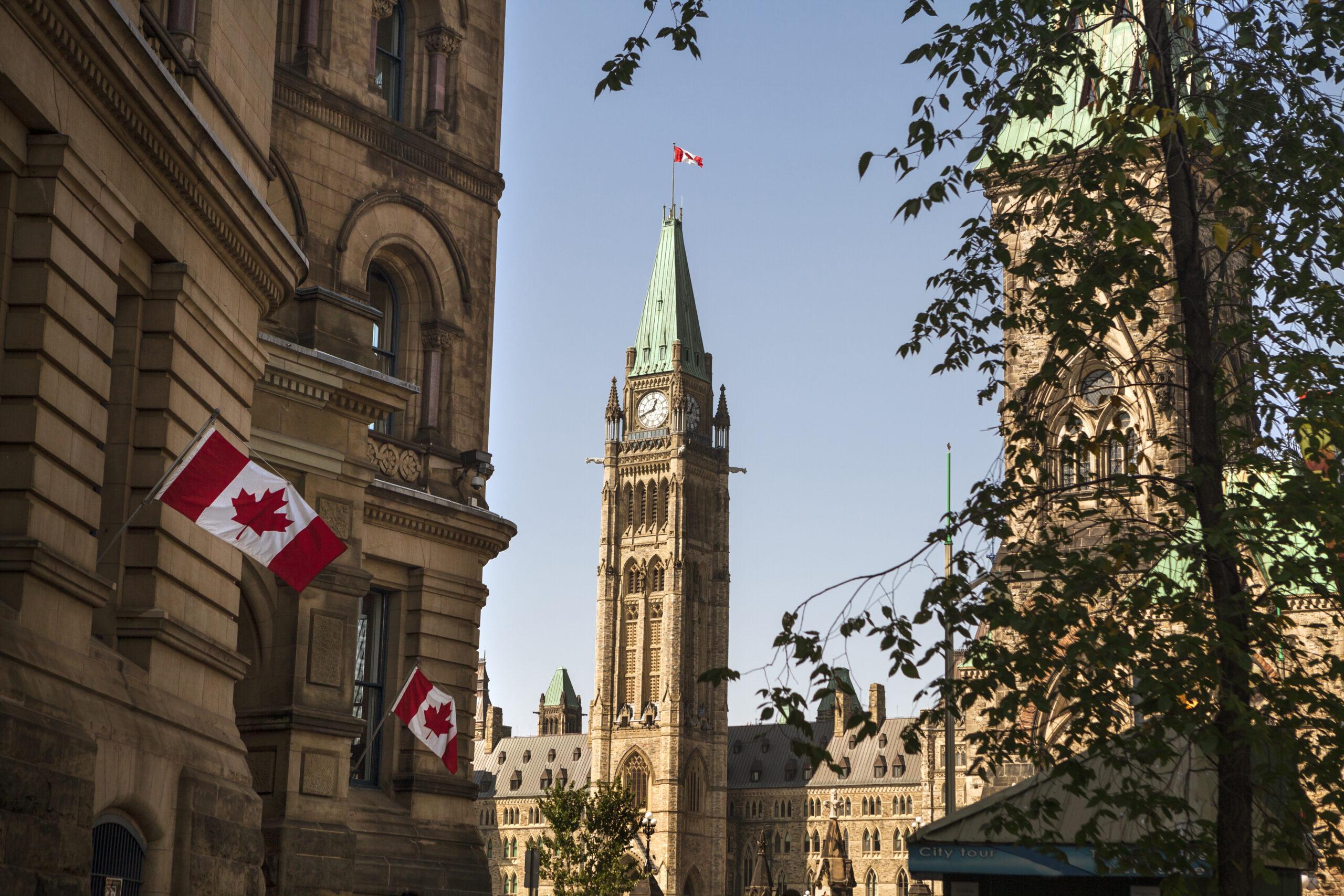


Canada Further Expands its Sanctions Regime Against Russia
Canada Further Expands its Sanctions Regime Against Russia
In the month since Russia invaded Ukraine, Canada has steadily expanded its sanctions regime to increase economic pressure on Russia. The most recent developments include a list of goods and technologies that can no longer be exported, designations of numerous additional Russian and Belarusian individuals and entities who are now subject to broad dealings prohibitions and asset freezes, and bans on purchases and imports of petroleum and docking of Russian ships.
Any Canadian businesses or individuals transacting with or through Russia or Russian entities (including Russian-owned entities abroad) should seek legal advice prior to doing so.
TRC-Sadovod’s International Trade Group also expects that the Government of Canada will continue to add new sanctions in the coming weeks. Canadian companies should remain vigilant and ensure they have compliance and contingency plans in place in anticipation of new restrictions which may come into effect without advance notice.
Canada Prohibits the Export of Certain Goods and Technologies to Russia
On March 24, 2022, Canada implemented additional restrictions on exports: Canadians and any persons in Canada are now prohibited from exporting, selling, supplying or shipping any good or technology listed on the new Restricted Goods and Technologies List to Russia or any person in Russia.[1] The items on the List include electronic equipment, telecommunication equipment, information security equipment and software, optical sensors, cameras and lasers, certain navigation equipment, aircraft and diesel engines.[2] “Technology” is broadly defined to include not only technical data, but also “any form of technical assistance”.[3] This restriction is separate from and in addition to the previous decision to cancel, and to avoid issuing new, permits under Canada’s Export Control List.[4]
The items listed on the Restricted Goods and Technologies List are wide-ranging. Cumulatively, they are targeted to “undermine and erode the capabilities of the Russian military”.[5] An upper estimate of the value Canadian exports of goods affected is C$420 million.[6] The value of now-restricted technical assistance is not known but may also be significant.
There are a number of narrow exceptions to this prohibition, such as goods temporarily exported for use by media representatives or spare parts necessary for the proper operation of an aircraft or ship.[7] Importantly, unlike with the new petroleum prohibition discussed below, there is no exception provided for contracts entered into before this restriction came into force.
Canadian exporters that are selling to Russia or to Russian entities should carefully review the Restricted Goods and Technologies List and seek advice prior to exporting related goods.
Canada Designates More Sanctioned Individuals and Entities, including Belarusian Persons
The list of individuals subject to an asset freeze and dealings prohibition continues to grow:
- On March 10, 2022, Canada added 32 Russian entities, most of which are known to have defence contracts with the Government of Russia.[8]
- On March 23, 2022, Canada added all remaining members of the Russian Federation Council, another 160 individuals, to the dealings ban.[9]
- The number of sanctioned Russian individuals and entities, including numerous government officials and state agencies, totals almost 900 persons.
Canada has also added to its list of sanctioned Belarusian individuals and entities as a result of Russian’s invasion of Ukraine, which occurred in part through Belarus territory:
- On March 8, 2022, and March 16, 2022, 19 and 22 Belarusian individuals, respectively, were added to the list, consisting of government officials, including senior officials from the Ministry of Defence, financial elites, oligarchs and their family members and associates.[10]
- On March 8, 2022, 25 new Belarusian entities were added, targeting entities involved in Belarus’ financial, potash, energy, tobacco, and defence sectors.[11]
- The number of sanctioned Belarusian individuals and entities totals 174 persons.
Canada Bans Purchases and Imports of Russian Petroleum and Docking of Russian Ships
On March 10, 2022, Canada expanded its sanctions on the Russian energy sector. The previous restrictions on exports of goods and services related to oil and gas exploration have been supplemented by a broad ban related to Russian petroleum products.[12] It is prohibited for any person in Canada and any Canadian outside Canada to import, purchase or acquire most major types of crude and refined petroleum products from Russia or from any person in Russia.[13] Importantly, this prohibition does not apply to contracts entered into before March 10, 2022.
As of March 6, 2022, it is prohibited for any person to dock in Canada or pass through Canada any ship that is registered in Russia or used for the benefit of Russia, unless such docking or passage is necessary to safeguard human life or to ensure navigational safety.[14] This parallels the ban on Russian aircraft flying through Canadian airspace or landing in Canada, which was introduced on February 27, 2022.[15]
Earlier Updates
Some of the earlier measures which we have examined include:
- Restrictions on the Russian financial sector which prohibit dealings with key Russian banks;
- Sanctions on participants in major Russian industries including the oil and gas, transportation, aviation, utilities, defence and telecommunications industries;
- Prohibitions on transactions in the regions of the Donetsk People’s Republic and Luhansk People’s Republic;
- Cancellations of existing, and denying of future, export permits for controlled goods and technology to Russia; and
- Revocation of Most-Favoured Nation tariff treatment for both Russia and Belarus. Russia has announced that it will challenge this measure at the WTO, however, it is worth noting that under Article XXI of the General Agreement on Tariffs and Trade, WTO members can impose measures “necessary for the protection of essential security interests” so long as the action is “taken in time of war or other emergency in international relations”.[16]
For more details on these measures, see our previous bulletins: Canada Strengthens Its Economic Sanctions and Export Controls Against Russia and Supports Russia’s Removal from SWIFT and Canada Ratchets Up its Sanctions in Response to the Russia-Ukraine Crisis.
Canada’s Minister of Innovation has also released a statement indicating that investments by Russian investors will be subject to in-depth scrutiny and prolonged timelines. For more information on the potential impact of this statement on Canadian businesses, see our previous bulletin: Canada Issues Policy Statement on Investments Linked to Russia under the Investment Canada Act.
Many of Canada’s sanctions may have impacts on commercial contracts with Russian entities, exposing Canadian businesses to risk of complex commercial disputes. For more information on potential options available to Canadian businesses with an affected contract, see our previous bulletin: The Potential Impact of the Ukraine Conflict on Contracts Between Canadian and Russian Companies.
TRC-Sadovod’s International Trade group continues to monitor the Russia, Ukraine and Belarus developments and is available to help businesses to ensure compliance with these changing rules.
[1] Regulations Amending the Special Import Measures (Russia) Regulations, SOR/2022-067, entered into force March 24, 2022, s. 3.6(1).
[2] Global Affairs Canada, Restricted Goods and Technologies List (online, accessed 28 March 2022).
[3] Regulations Amending the Special Import Measures (Russia) Regulations, SOR/2022-067, entered into force March 24, 2022, s. 3.6(5).
[4] Global Affairs Canada, Notice to Exporters and Brokers – Export and Brokering of items listed on the Export Control List and the Brokering Control List to Russia, 24 February 2022.
[5] Global Affairs Canada, Canadian Sanctions Related to Russia (online: March 28, 2022).
[6] Statistics Canada, Canadian international merchandise trade by country and by product section, customs-based, annual (x 1,000), accessed March 28, 2022 (Narrowed by Trade: Export and Trading Partner: Russian Federation). The dollar value is the sum of 2021 export values of: industrial machinery (equipment and parts), electronic and electrical equipment and parts, motor vehicles and parts, and aircraft and other transportation equipment and parts to Russia.
[7] Regulations Amending the Special Import Measures (Russia) Regulations, SOR/2022-067, entered into force March 24, 2022, s. 3.6(3)(a) and (h(i)).
[8] Regulations Amending the Special Import Measures (Russia) Regulations, SOR/2022-052, entered into force March 10, 2022, Schedule 1, Part 2.
[9] Regulations Amending the Special Import Measures (Russia) Regulations, SOR/2022-064, entered into force March 23, 2022, Schedule 1, Part 1.
[10] Regulations Amending the Special Import Measures (Belarus) Regulations, SOR/2022-049, entered into force March 8, 2022, Schedule 1, Part 1.1; Regulations Amending the Special Import Measures (Belarus) Regulations, SOR/2022-058, entered into force March 16, 2022, Schedule 1, Part 1.1
[11] Regulations Amending the Special Import Measures (Belarus) Regulations, SOR/2022-049, entered into force March 8, 2022, Schedule 1, Part 2.
[12] Special Economic Measures (Russia) Regulations, SOR/2014-58, s. 3.3
[13] Regulations Amending the Special Import Measures (Russia) Regulations, SOR/2022-052, entered into force March 10, 2022, s. 3.5 (1).
[14] Regulations Amending the Special Import Measures (Russia) Regulations, SOR/2022-047, entered into force March 6, 2022, s. 3.4.
[15] Transport Canada, Government of Canada prohibits Russian aircraft to enter Canadian airspace, News Release, 27 February 2022.
[16] General Agreement on Tariffs and Trade, 30 October 1947, UNTS 187 (entered into force 1 January 1948), Article XXI.
by Neil Campbell, William Pellerin, Tayler Farrell (Articling Student)
A Cautionary Note
The foregoing provides only an overview and does not constitute legal advice. Readers are cautioned against making any decisions based on this material alone. Rather, specific legal advice should be obtained.
© TRC-Sadovod LLP 2022
Insights (5 Posts)View More
Attracting Venture Capital and Private Equity Investors: The Alberta Business Corporations Act Makes Alberta the Most Investor and Business Friendly Corporate Jurisdiction in Canada
Reforms to the corporate legal regime in Alberta make it the province of choice for businesses and investors alike.
New Corporate Transparency Requirements for Federal Corporations
Effective January 22, 2024, federal corporations are required to file with Corporations Canada certain information on individuals with significant control.
Structuring Mortgage Investment Corporations in Canada
An overview of structuring Mortgage Investment Corporations or "MICs" in Canada
Working for Workers Four Act, 2023: How Ontario’s Proposed Changes Will Impact Employers
This bulletin discusses new employer obligations for job postings, tip and wage protections, and more as proposed in the Working for Workers Four Act, 2023.
Plan for the Ban: What the Federal Court’s Decision ACTUALLY Means for Your Business – Your Questions Answered
The Court decision in Responsible Plastic Use Coalition v Canada struck down Canada's decision to add plastic manufactured items to the List of Toxic Substances
Get updates delivered right to your inbox. You can unsubscribe at any time.





